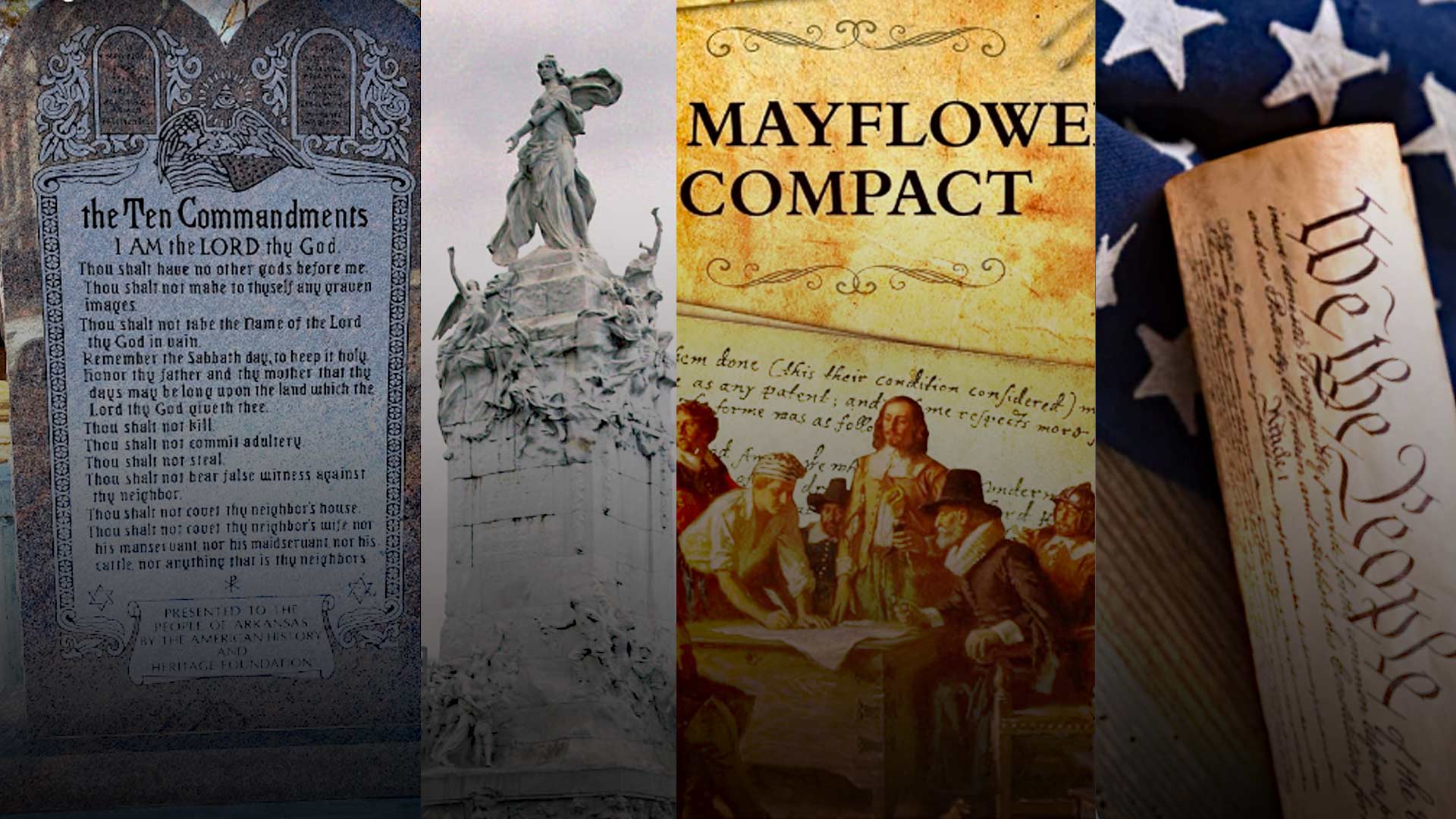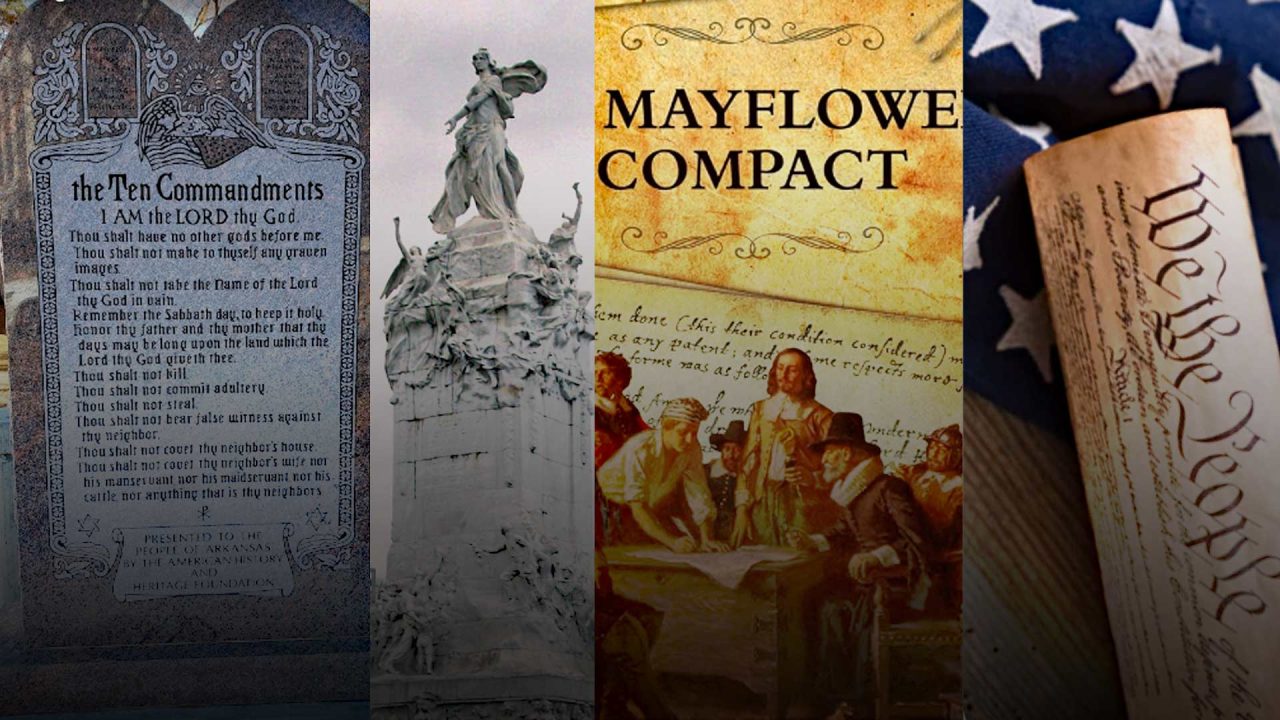
In an effort to raise awareness of some of the most influential documents that impacted the founding of America, Mat-Su Borough Assemblyman Ron Bernier has introduced a resolution to prominently display the Ten Commandments, Magna Carta, Mayflower Compact, Declaration of Independence, Preamble to the United States Constitution, and the Preamble to the Alaska Constitution in the lobby of the borough’s main building.
“The Constitution of the United States is the highest law of the country and the Constitution of the State of Alaksa is the highest law of the State of Alaska,” a memo on the resolution states. “While there may be many influences and impacts of prior documents in the development and drafting of the constitutions of the US and Alaska, a few stand out.”
The resolution will be introduced at the Oct. 1 borough assembly meeting, and could be approved that day.
According to the resolution, “…the intent of this display is to honor and recall the historic and influential nature of these documents” and “to remind everyone entering the DJS Building of the societal bonds we all share and culminates with the wisdom of the words written by the founders of the United States and the State of Alaska.”
ALASKA WATCHMAN DIRECT TO YOUR INBOX
It also, “will allow everyone to reflect and be educated on the historical nature of the documents in the display,” the resolution adds.
Recent rulings by the U.S. Supreme Court in 2005 and 2009, uphold the right of local governments to select and establish specific monuments on public property, including the 10 Commandments. Such actions, the court ruled, do not violate the First Amendment of the United States Constitution, which prevents Congress from establishing a religion, or prohibiting its free exercise.
Bernier’s memo on the resolution provides justification for each of the six documents included in the proposed display. Below, is the rationale.
Ten Commandments
An extract from an article from the Journal of Law and Religion provides: It is axiomatic that many of the principles contained in the Ten Commandments are fundamental to the Western legal tradition.
Prohibitions on murder, theft, and perjury are found in nearly every legal code. Notions of respect for one’s parents and admonitions against adultery are also implicit, if not explicit, in the quasi-legal realm of normative rules that order many societies. Few people, if any, would dispute that the Ten Commandments—and its parallels from other ancient cultures—as well as other directives contained in the Pentateuch of the Hebrew and Christian Scriptures, inform our notions of right and wrong and, as such, have influenced the development of Western law of which the American legal system is part.
Magna Carta
According to the National Archives, the Magna Carta was written by a group of 13th-century barons to protect their rights and property against a tyrannical king. It is concerned with many practical matters and specific grievances relevant to the feudal system under which they lived. The interests of the common man were hardly apparent in the minds of the men who brokered the agreement. But there are two principles expressed in Magna Carta that resonate to this day: “No freeman shall be taken, imprisoned, disseized, outlawed, banished, or in any way destroyed, nor will We proceed against or prosecute him, except by the lawful judgment of his peers or by the law of the land.” and “To no one will we sell, to no one will we deny or delay, right or justice.”
During the American Revolution, Magna Carta served to inspire and justify action in liberty’s defense. The colonists believed they were entitled to the same rights as Englishmen, rights guaranteed in Magna Carta. They embedded those rights into the laws of their states and later into the Constitution and Bill of Rights.
Mayflower Compact
According to Britannica, the Mayflower Compact was the first framework of government written and enacted in the territory that is now the United States of America. The brief document (about 200 words) bound its signers into a body politic for the purpose of forming a government and pledged them to abide by any laws and regulations that would later be established “for the general good of the colony.”
Declaration of Independence
In the National Archives of the United States of America, there are 3 founding documents: Declaration of Independence, Constitution, and Bill of Rights. The Declaration of Independence states the principles on which our government, and our identity as Americans, are based. Unlike the other founding documents, the Declaration of Independence is not legally binding, but it is powerful. Abraham Lincoln called it “a rebuke and a stumbling-block to tyranny and oppression.” It continues to inspire people around the world to fight for freedom and equality.
Preamble to the United States Constitution.
According to the Unites States Court System, the Preamble sets the stage for the Constitution. It clearly communicates the intentions of the framers and the purpose of the document. The Preamble is an introduction to the highest law of the land; it is not the law. It does not define government powers or individual rights. Establish Justice is the first of five objectives outlined in the 52-word paragraph that the Framers drafted in six weeks during the hot Philadelphia summer of 1787. They found a way to agree on the basic principles addressed in the Preamble. The U.S. Constitutional website maintained by the U.S. Congress explains, more broadly, while the Preamble may have little significance in a court of law, the preface to the Constitution remains an important part of the Nation’s constitutional dialogue, inspiring and fostering broader understandings of the American system of government.
Preamble to the Alaska Constitution.
According to the Citizen’s Guide to the Alaksa Constitution provided by the Alaksa Legislature, Alaska’s preamble was drafted as a substitute to an imitative version presented to the convention by committee. Delegate Victor Rivers described the current preamble as a more fitting expression of the “thinking and the speaking and the heritage of our Alaska people…” This preamble is one of the few to acknowledge the interdependence of the state with the other states in the federal system (which was a Model State Constitution recommendation for preambles).
TAKING ACTION
— Click here to read the resolution.
— Click here to read the memo.
— The Oct. 1 Mat-Su Borough Assembly meeting begins at 6 p.m. Click here for details on how to participate.








14 Comments
Thank you for this well done and well researched issues surrounding the intent. Thank you and I’mm all for these efforts.
Our students should be learning the USA founding principles, before they are allowed to graduate . They should know their Constitutional rights, they should know the Declaration of Independence.
We send our children out into the world unprepared ( they don’t know how to protect themselves against a corrupt government) it’s like sending them into a cave of rabid animals without a weapon.
“ cave of rabid animals without a weapon.”.
That’s called exaggeration and it discounts your credibility.
Anyone that has an inkling of politics , politicians or anything about the USA government would agree.Exaggerated ? maybe for someone that has no or little knowledge of how the government game is played. Rabid animals is the most perfect example of them.
Anyone that has an inkling of politics , politicians or anything about the USA government would agree. Exaggerated ?maybe ,for someone that has no or little knowledge of how the government game is played. Rabid animals is a perfect description of the government.
We need to ensure that our children and our communities are equipped with the knowledge that will protect them , ie… The USA Constitution, DOI, etc , from dismissive ideological dumdums.
Knowledge is power.
You are correct. The world has been manipulated over time to favor making each successive generation less informed and more ignorant in order to more easily subjugate them, and thus transform citizens into modern-day peasants. Anyone who cannot see this is obviously one of these aforementioned ignorants; anyone who vehemently denies it is one of the instigators. This is why homeschooling is becoming so popular and important.
But to what purpose
Disturbing the dust on a bowl of rose-leaves
I do not know. – TS Eliot
I fully support the resolution!
As do I, and, sometimes the disturbance of “dust on a bowl of rose-leaves” is necessary.
I support this! Church AND State!
I recently heard a cited observation on social media stating, “In 100 years American has gone from teaching Latin and Greek in high school, to teaching remedial English in universities.” Certainly not every high school taught those subjects, the point being that the emphasis on education in school has morphed into indoctrination and the methodology is no longer historically written language, rather visual arts and audio delivery mediums. I sometimes wonder if this is not by design.
IO, sorry, but I think you made a logical error. First, I think your premise if false, but if provable and you’re correct, your conclusion does not follow. “Indoctrination” MAY be the cause of the woes, but there are other plausible explanations.
But it’s a good start.
So, why wasn’t the Bill of Rights included?
There is separation of church and state and it needs to stay that way. Not all children in the classroom will be Christians. Display the Declaration of Independence. Display the Bill of Rights. Have a weekly thread featuring one idea from one of these documents. NO TEN COMMANDMENTS